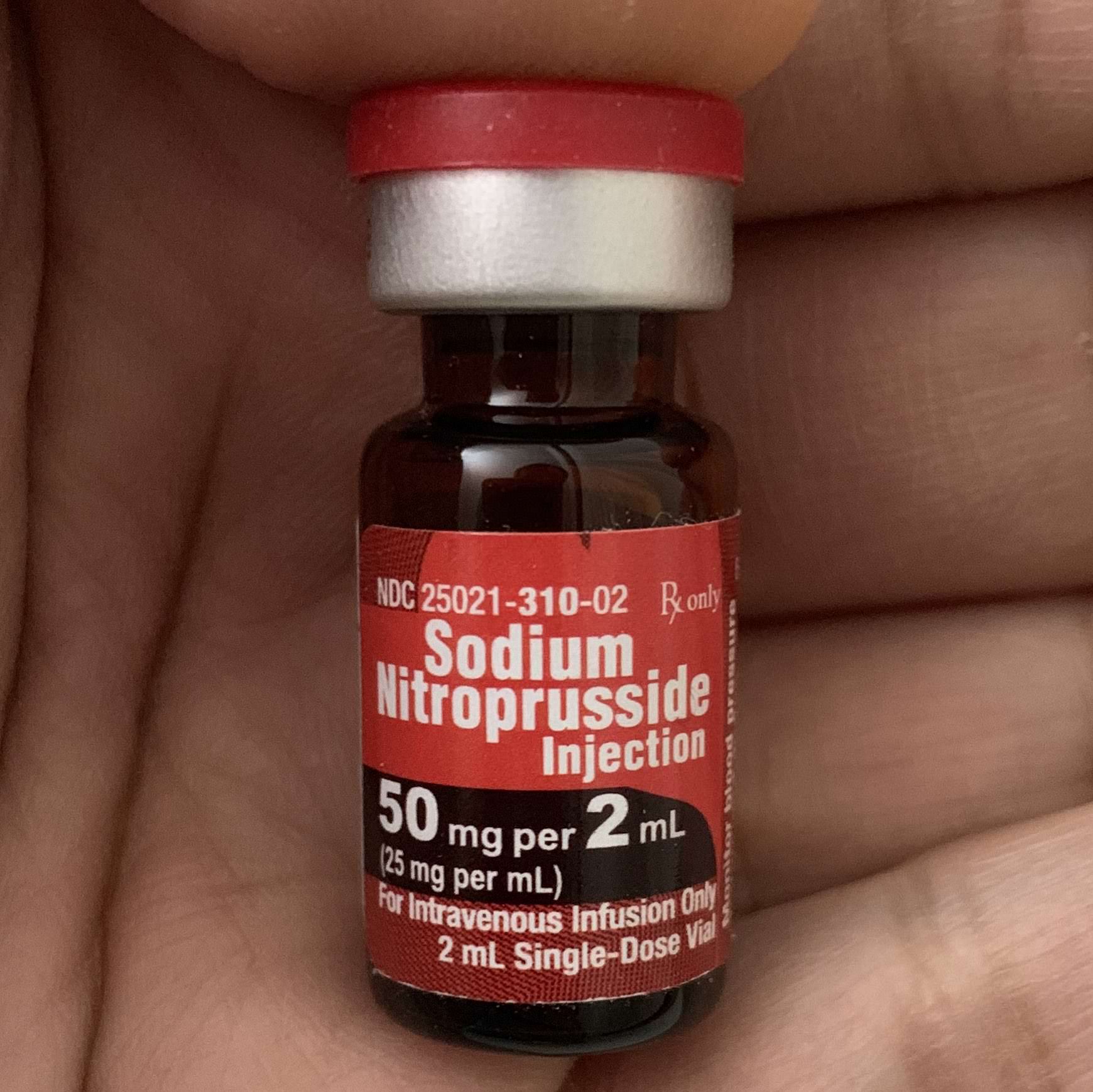Sodium nitroprusside (SNP, Nipride/Nitropress) is a short-acting, intravenous antihypertensive that directly acts on venous AND arteriolar smooth muscle to cause vasodilation decreasing preload, afterload, and left ventricular (LV) impedance. As an intensivist and cardiac anesthesiologist, I like to separate venodilation from vasodilation with separate agents, so I don’t use nitroprusside that often in my practice.
Compared to other nitrates, nitroprusside does indeed have a significant effect on the arterial vessels; however, due to its metabolism, the production of cyanide ions is an important consideration for high dose and longer infusion durations. Cyanide toxicity of the electron transport chain affects the utilization of oxygen by cellular machinery. This lack of utilization INCREASES the content of oxygen that ends up in the venous system.
So how do we treat cyanide toxicity?
Using agents like sodium nitrite (to generate methemoglobin which binds with cyanide to create cyanomethemoglobin), sodium thiosulfate (to create thiocyanate), and hydroxycobalamin (which binds with cyanide to create a form of vitamin B12 – cyanocobalamin), we can mitigate the toxic effects of cyanide on the electron transport chain and cellular respiration. In the interim, oxygen therapy is helpful!
Drop me a comment below with questions! 🙂






